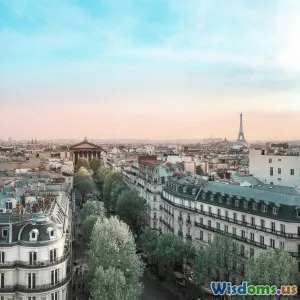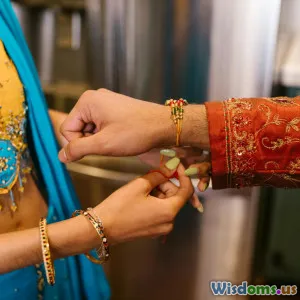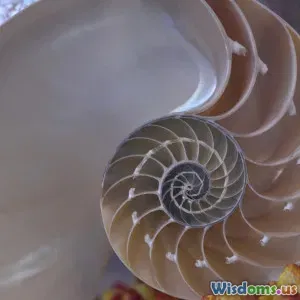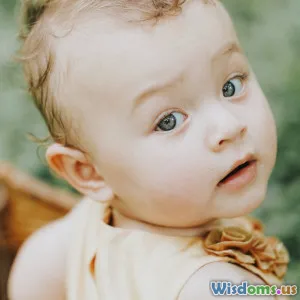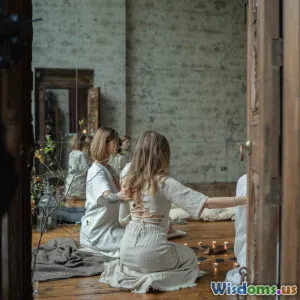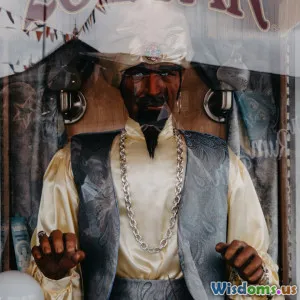
Cultural Perceptions of Magic Around the World
6 min read Explore global views on magic, from ancient rituals to modern performances, and how culture shapes our understanding of the mystical. (0 Reviews)
Cultural Perceptions of Magic Around the World
Magic has always fascinated humanity, transcending borders and cultures. While often associated with entertainment in contemporary society, the perception of magic varies significantly across different cultures. This article explores these diverse cultural perceptions, from ancient rituals to modern stage performances, and sheds light on how they shape our understanding of magic today.
1. The Roots of Magic in Culture
Magic is deeply embedded in the history of human civilization. From the earliest days, magic was often intertwined with religion and spirituality. In many ancient cultures, magic was seen as a powerful tool for healing, divination, and communication with the divine. For instance, in Ancient Egypt, priests performed rituals that harnessed the power of the gods, while in indigenous cultures, shamans used magic to heal the sick and connect with the spiritual realm.
1.1. Ancient Rituals and Beliefs
In many African tribes, magic is viewed as a vital part of community life. Rituals involving magic are performed to ensure good harvests, protect against illness, and ward off evil spirits. In contrast, in Western cultures, the view of magic has evolved from its historical roots in the occult and witchcraft to a more secular understanding associated with entertainment.
2. Magic as Entertainment
In contemporary society, magic is predominantly perceived as a form of entertainment. Stage magicians, or illusionists, captivate audiences with their tricks and illusions, which often blend storytelling, theatrics, and psychological principles. The modern magician often draws inspiration from historical practices but presents them in a way that is accessible to a wide audience.
2.1. The Role of Performance
Performance magic has its own cultural significance, as seen in the popularity of magic shows worldwide. In Japan, for instance, the art of magic, or “Mahō,” incorporates elements of traditional storytelling (Noh and Kabuki), making it unique and deeply rooted in the country’s cultural heritage. This highlights how magic adapts to local customs and traditions, creating a rich tapestry of performance art that reflects societal values.
3. Cultural Differences in Perception
Magic’s perception varies widely across cultures. In the West, it is largely associated with entertainment and skepticism, while in many Eastern cultures, it retains a spiritual significance. This section examines several regions and their unique perceptions of magic.
3.1. Africa: Magic as Community
In many African cultures, magic is communal and serves social purposes. It is not merely entertainment but a means of fostering community bonds and addressing societal issues. Rituals and performances often involve the participation of the audience, reinforcing social ties and cultural identity.
3.2. Asia: Spirituality and Performance
In Asian cultures, magic often intertwines with spirituality. In India, for example, magic has roots in ancient texts, and practitioners known as “Jaduwalas” perform tricks that are often steeped in spiritual meaning. Similarly, in China, traditional forms of magic are celebrated during festivals and are believed to bring good fortune.
3.3. The Americas: From Tradition to Modernity
In the Americas, magic has evolved from indigenous practices to contemporary entertainment. Native American cultures have rich traditions of storytelling and shamanism, while modern magic shows often incorporate elements of these traditions, creating a fusion that resonates with both native and contemporary audiences.
4. The Impact of Technology on Magic
With the advent of technology, the world of magic has transformed significantly. Digital magic, incorporating elements like augmented reality and visual effects, has opened new avenues for magicians. This evolution prompts a reevaluation of what magic is and how it is perceived in the digital age.
4.1. Social Media and Globalization
Social media has played a crucial role in globalizing magic. Platforms like YouTube allow magicians from different cultures to share their performances, leading to a cross-pollination of styles and techniques. This accessibility has transformed magic into a global phenomenon, where cultural boundaries are blurred, and new forms of magic emerge.
Conclusion
Cultural perceptions of magic are as varied as the cultures themselves. From sacred rituals to modern performances, magic continues to evolve, reflecting societal values and beliefs. As we explore these diverse perceptions, we gain a deeper appreciation for the art of magic and its significance in human culture. Understanding these cultural nuances not only enriches our experience of magic but also fosters a greater connection to the diverse tapestry of human expression.
Ultimately, magic remains a powerful symbol of our collective imagination and curiosity, bridging gaps between cultures while reminding us of our shared humanity.
Rate the Post
User Reviews
Popular Posts










